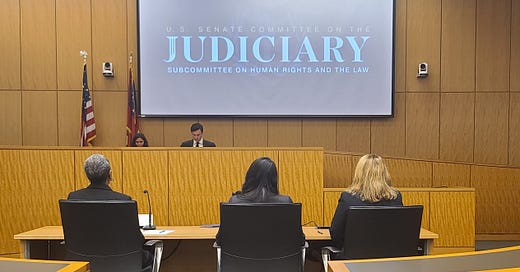Things Are Moving
Foster care is in crisis, GSU is wrestling with a problem property, and the YSL case finally has a jury.
Over the last week, U.S. Sen. Jon Ossoff has been holding a series of hearings about the failures of Georgia’s foster care system. At the Georgia State University school of law Monday, three juvenile court judges offered a shocking accusation of the Department of Family and Children’s Services.
Carolyn Altman, a juvenile court judge in Paulding County, t…
Keep reading with a 7-day free trial
Subscribe to The Atlanta Objective with George Chidi to keep reading this post and get 7 days of free access to the full post archives.




